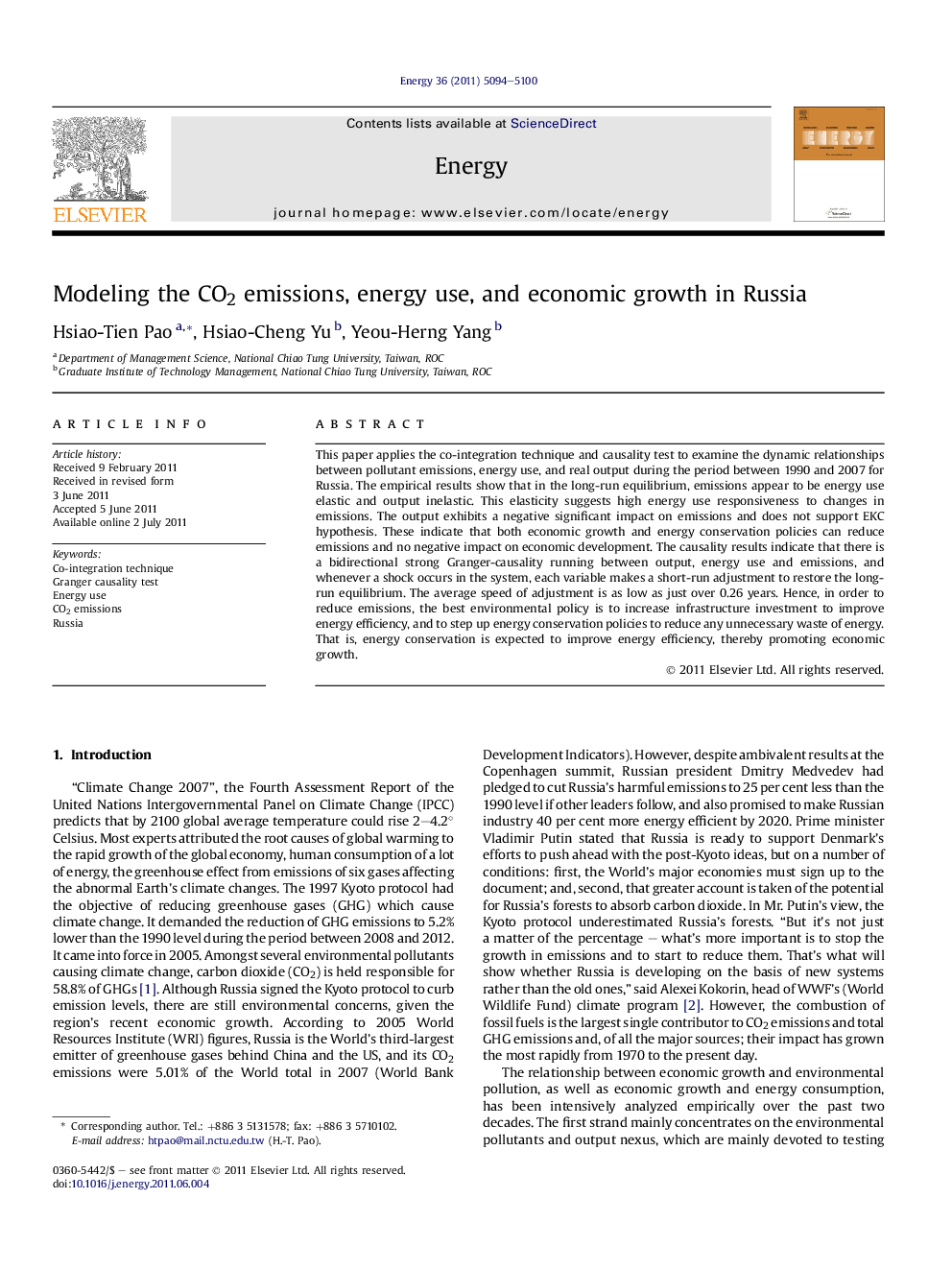| Article ID | Journal | Published Year | Pages | File Type |
|---|---|---|---|---|
| 1734272 | Energy | 2011 | 7 Pages |
This paper applies the co-integration technique and causality test to examine the dynamic relationships between pollutant emissions, energy use, and real output during the period between 1990 and 2007 for Russia. The empirical results show that in the long-run equilibrium, emissions appear to be energy use elastic and output inelastic. This elasticity suggests high energy use responsiveness to changes in emissions. The output exhibits a negative significant impact on emissions and does not support EKC hypothesis. These indicate that both economic growth and energy conservation policies can reduce emissions and no negative impact on economic development. The causality results indicate that there is a bidirectional strong Granger-causality running between output, energy use and emissions, and whenever a shock occurs in the system, each variable makes a short-run adjustment to restore the long-run equilibrium. The average speed of adjustment is as low as just over 0.26 years. Hence, in order to reduce emissions, the best environmental policy is to increase infrastructure investment to improve energy efficiency, and to step up energy conservation policies to reduce any unnecessary waste of energy. That is, energy conservation is expected to improve energy efficiency, thereby promoting economic growth.
► In Russia, emissions are energy use elastic and real output inelastic, but energy is a more important determinant of emissions than output. ► In Russia, the real output exhibits a negative significant impact on emissions and does not support EKC hypothesis. ► In Russia, there is a bidirectional strong causality relationship between emissions, energy use and output. ► In Russia, the average speed of a short-run adjustment to restore long-run equilibrium is about 0.26 years. ► In Russia, the energy conservation is expected to improve energy efficiency, thereby promoting economic growth.
